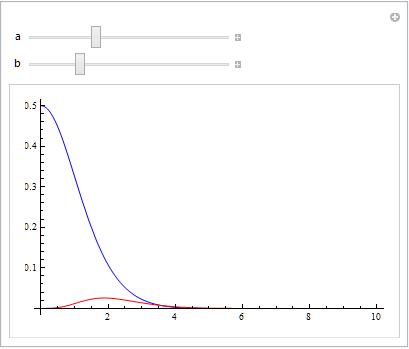Mathematica couldn't solve following using just integrate function. I checked on interpolating as well, that also turned to be a dead end. Can someone help me with evaluating this integral? If it helps one can differentiate with respect to t and get an integro-differential equation and solve that. I tried both.
a,b,τ,t are all real numbers. Initial condition is σ[0] =0.5;
σ[t] == Assuming[{Element[{τ, t, a, b}, Reals], τ >= 0, t >= 0}, Integrate[Integrate[a (-1 + Exp[b (-1/(t - τ)^2 - 1/(I + t - τ)^2 + π^2 Csch[π (t-τ)]^2)]), {τ, 0, t}] σ[t], {t, 0, t}]]
Integro-differential equation is of the form,
eqn = Derivative[1][σ][t] == a*Assuming[{Element[{τ,t,a,b},Reals],τ>= 0,t>=0},Integrate[(Exp[b (-1/(t - τ)^2 - 1/(I + t - τ)^2 + π^2 Csch[π (t-τ)]^2)]-1)*σ[t],{τ,0,t}];


